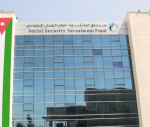You are here
Addressing the causes, not the symptoms
Jun 05,2016 - Last updated at Jun 05,2016
Preparations for the battles of Raqqa and Mosul, Daesh’s base, seem to continue.
The US appears to seek a decisive victory over Daesh, an important goal that the Obama administration hopes to achieve before the end of its term.
The major pending questions in the area are: Does eliminating Daesh mean the end of the organisation or terrorism?
Is the world interested in eliminating Daesh or in eliminating the causes of continuous breeding of terrorist groups?
The planned battle with Daesh may be able to destroy the structure of the terrorist organisation, but might also lead to a more radicalised off shoot of it if the reasons for the ideology that spawns such terrorists are not addressed.
In the confrontation with Daesh, it is important to analyse carefully the issues mentioned in its leader’s declaration of the caliphate.
At the same time, it is important to realise that Daesh’s disappearance, if it happens, does not mean its dogma and appeal will disappear if the causes for its existence are still there; other, new, organisations might come into existence. There is often a successor to such groups.
The security challenges posed by Daesh or any similar group are always global and they target all aspects of civic life.
Following the evolution of terrorist groups one sees that with every newer organisation, the level of violence and brutality increases, which means that any Daesh successor will be more brutal and violent than Daesh itself.
Daesh’s declaration of a caliphate was like declaring the battle of Armageddon. It brought to the minds of many the battles of “Al Sham” and “Dabiq”, or the sacking of Constantinople and Rome. This seems to have enticed many to serve Daesh.
Extremists and salafists, people who suffer from social, economic, political and psychological problems, all became ticking bombs ready to explode any time, anywhere, in the context of the final battle and the victory of the caliphate.
The declaration of the caliphate opened the door to a “pilgrimage” towards the terrorist group. It also seems to have put all political systems that insist on building their identity on religious legitimacy in some kind of existential crisis, raising the question of who represents Islam or the Sunni world.
The battle today should be one for change of culture and values.
At the same time, making this battle merely political means that there will be no search for solutions to the sources and reasons for the continuous breeding of extremist and terrorist groups.
And that may also mean that some time in the future, we could witness another conflict with more advanced and brutal groups than Daesh.













